On April 15th, 30 faculty and students from the Center for Interdisciplinary Studies (CIS) of Westlake University visited Longwu Tea Village in Hangzhou for a team-building activity. Rather than just a typical team-building event, it was an opportunity for these research minds to "recharge" in the vast energy field of the West Lake (the real lake!). Known as the "Ten-Thousand-Dan Tea Township," Longwu Tea Village is a core production area of West Lake Longjing tea. Here, ten thousand mu of tea gardens stretch across rolling hills, and the fragrance of tea permeates the spring mountains. The event was held at a camp by the tea gardens, taking advantage of this unique natural setting.
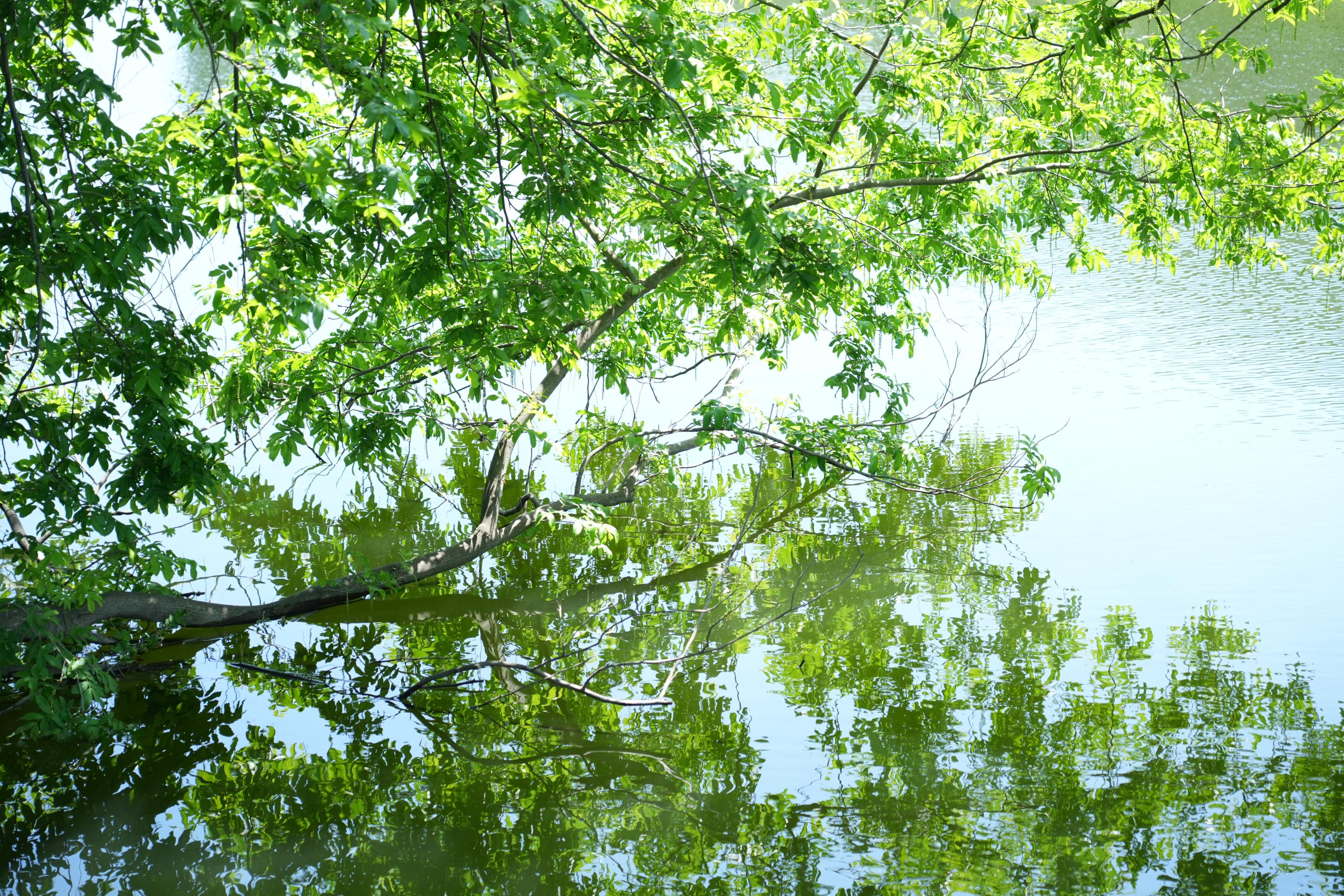
Camping ground for team building.
Grand Challenges: Moving the Conference Room into Nature
Shortly after 9:30 AM, as soon as the bus arrived, Dr. Yang Yifan from the Systemic Aging Laboratory of CIS led everyone into the CIS Unconference activity he designed and hosted. The 30 faculty and students were randomly divided into 5 interdisciplinary groups based on the keywords they provided, and they launched a creative brainstorming session around "grand challenges." Focusing on cutting-edge themes including 1) Virtual Cell, 2) Omics, 3) Evolution/Medicine/Synthetic, 4) Computation, and 5) Collective Behavior/Nature—the five groups engaged in lively discussions in the sunshine and breeze of the camp. Some quickly sketched model diagrams on whiteboards, while others shared cross-disciplinary cases combining biological evolution and algorithm design. Principal Investigators sat side by side with students, exchanging ideas.
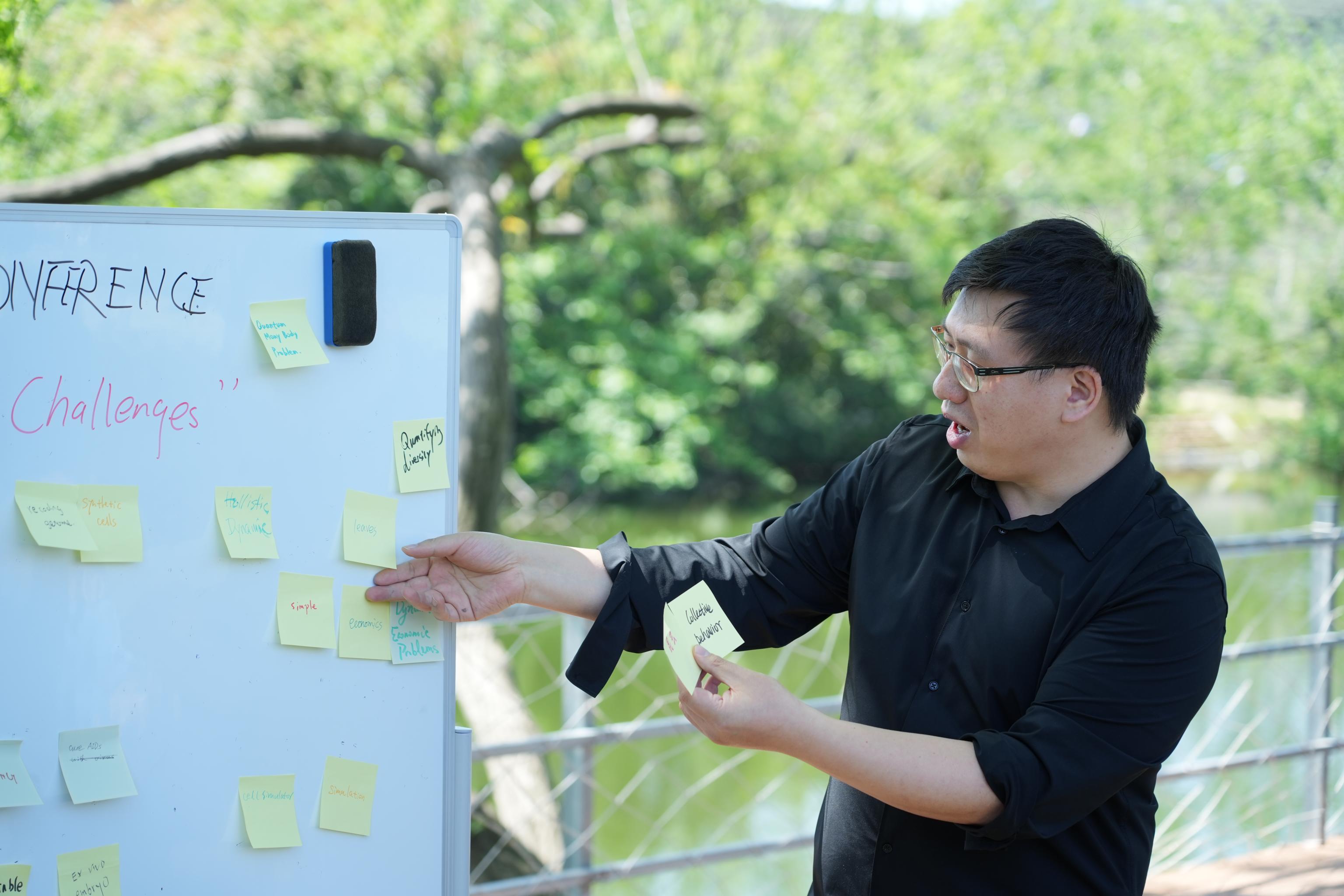
Professor Yang Yifan from the Laboratory of Systems Aging of Westlake University's Center for Interdisciplinary Studies (CIS) is randomly forming teams based on the keywords provided by everyone.

Visiting students, doctoral students, postdocs, PIs, and even administrative staff participated in this event.

The whiteboard that was moved from Dr. Yang Yifan's office finally came in handy! Eventually, they were divided into 5 groups based on Grand Challenges.
After 90 minutes of brainstorming, each group's presentation session adopted a "3+3" format: 3 minutes to condense core ideas, followed by 3 minutes of "thought-provoking questions" from cross-disciplinary perspectives. This discussion, both open and in-depth, not only transformed the abstract "grand challenges" into explorablable research directions but also enabled "boundaryless" academic collisions.

The enthusiasm for discussion was as intense as the sunshine. Everyone was fully engaged, with every word sparking intellectual inspiration.




Each group confidently presented their discussion results and skillfully responded to various "thought-provoking questions," creating a lively atmosphere.
BBQ Fun: Researchers Become Grill Experts
After the CIS Unconference, it's time to enjoy a barbecue! More than 30 kinds of food were ready to cook, such as handmade lamb skewers and well-seasoned beef sticks. Faculty and students collaborated around the stove, grilling food with their own hands. Dr. Jianyang Zeng from the School of Engineering of Westlake University became a "star griller"—his skewers looked so good they could be in a cooking magazine. Xu, a student from Dr. Zhou Zhennan's laboratory, was awarded the title of "Shrimp King" for his perfectly grilled shrimp, which were crispy on the outside and tender on the inside, tempting everyone who passed by to try one.
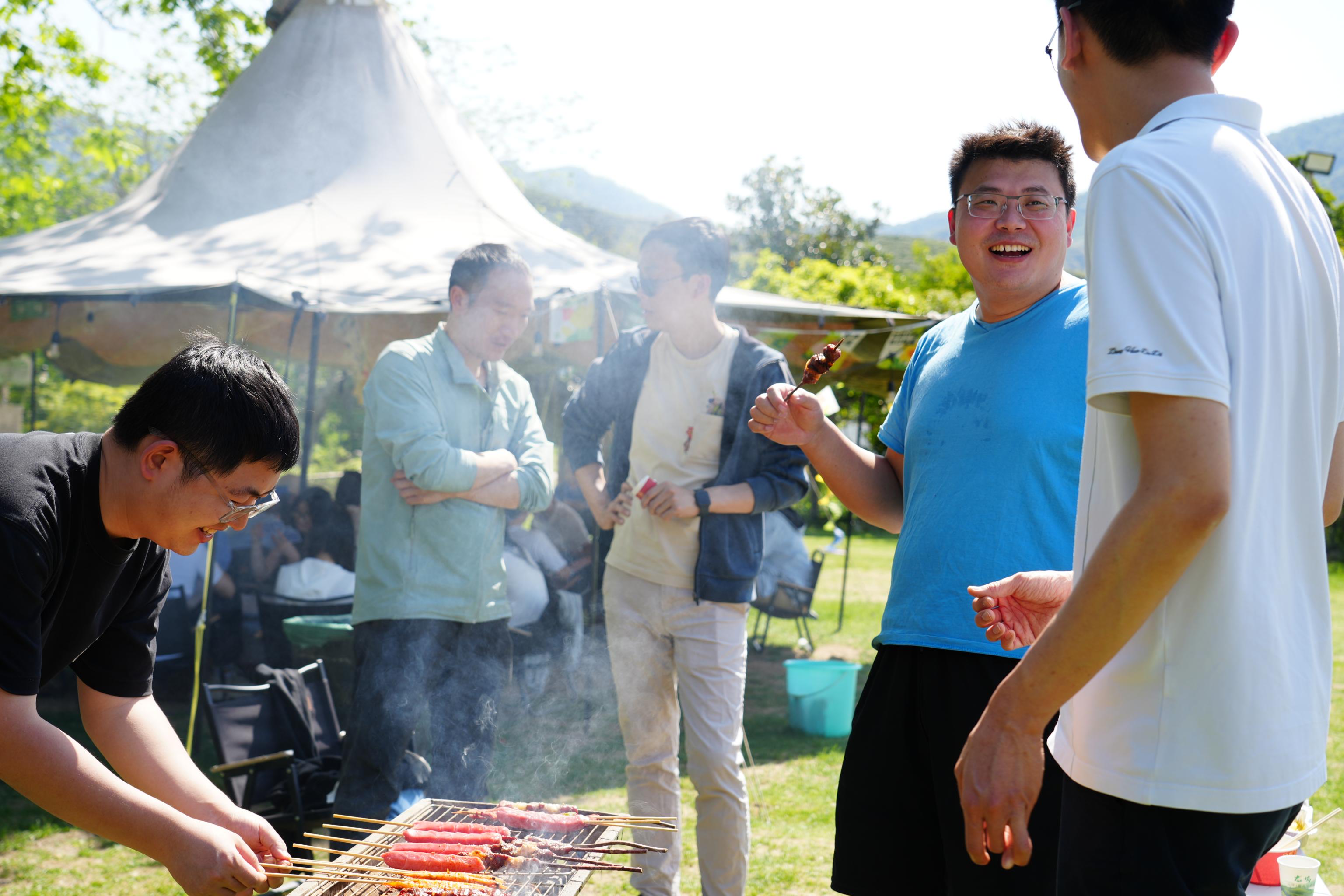
Xu (first from the left), who earned the title of "Shrimp King," is focused on grilling. Next to him, Dr. Fangzhou Xiao from Biomachine Architecture and Control (BMAC) Lab and Dr. Po-Yi Ho from the Microbiome Engineering Laboratory are enjoying skewers amid laughter.
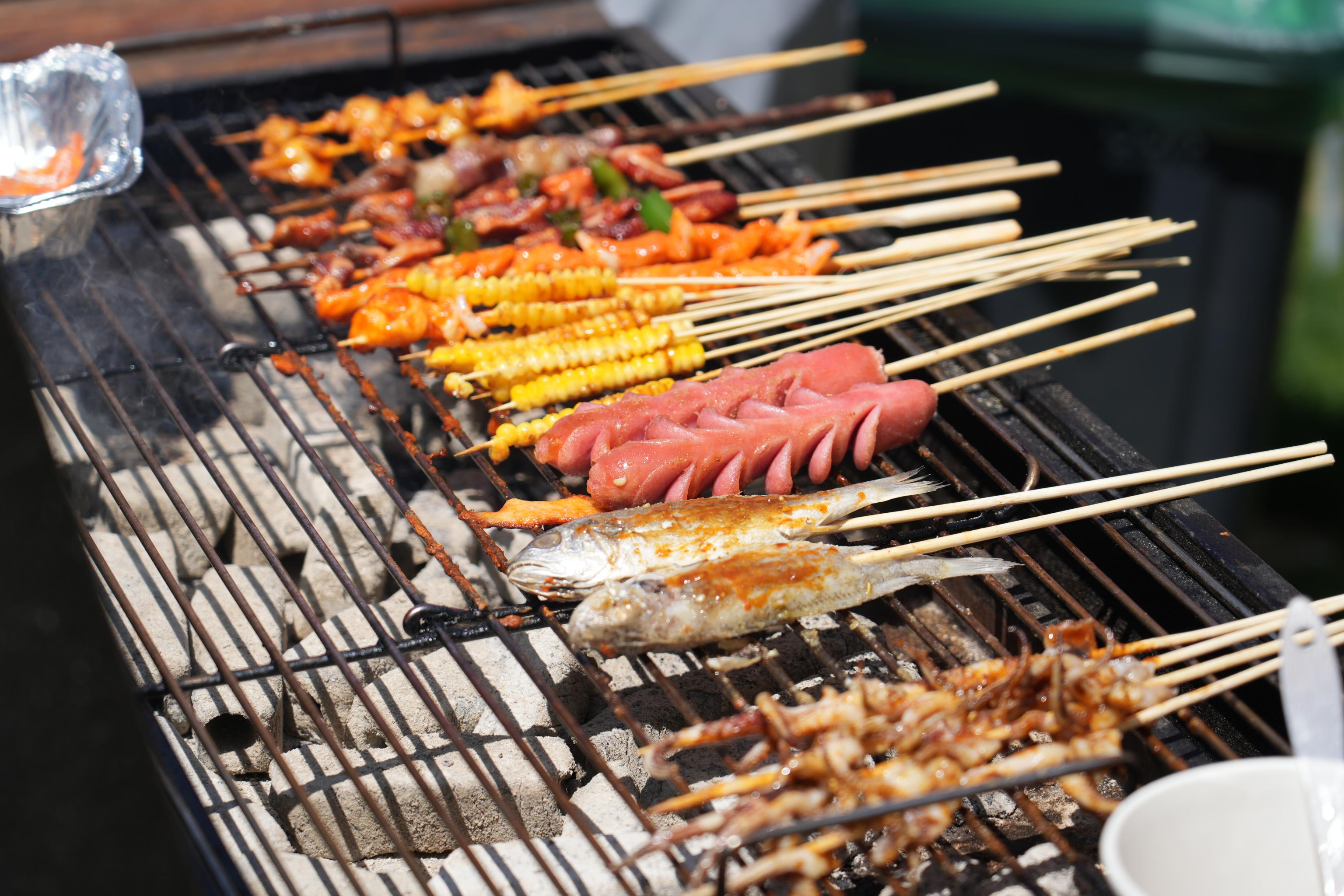
From Bud to Brew: Apprentices Embrace the Ancient Art of Longjing Tea
Post-lunch, bamboo hats strapped on and baskets in hand, the group followed local tea farmers into emerald-green fields for a crash course in tea harvesting. Under the spring sun, fingertips brushed tender tea buds — plucking only the prized "one bud, one leaf" with ritualistic care. The real test came at the wok. Gathered around iron pans heated to 200°C, novices mimicked generations-old hand gestures — grasping, tucking, pressing, polishing — to coax emerald leaves into fragrant Longjing tea. Sweat dripped as palms met scorching metal, transforming limp foliage into crisp, curled strands releasing grassy sweetness. Each participant earned a 100-gram tin of self-processed tea, sealed with a ribbon. "It’s like bottling springtime itself," remarked one first-timer, cradling their artisanal souvenir.
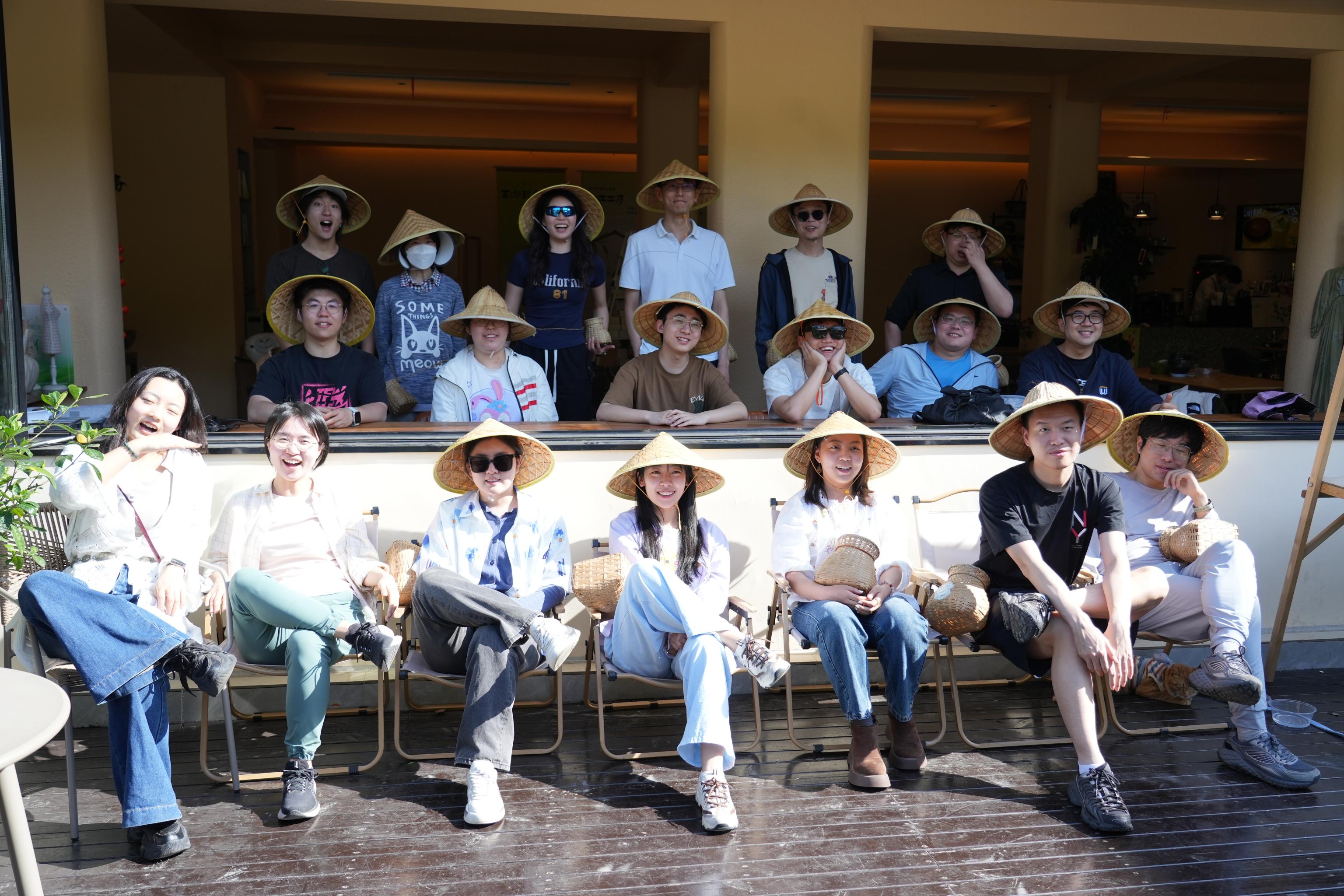
Group Photo before setting out to harvest tea!

Tea harvesting!
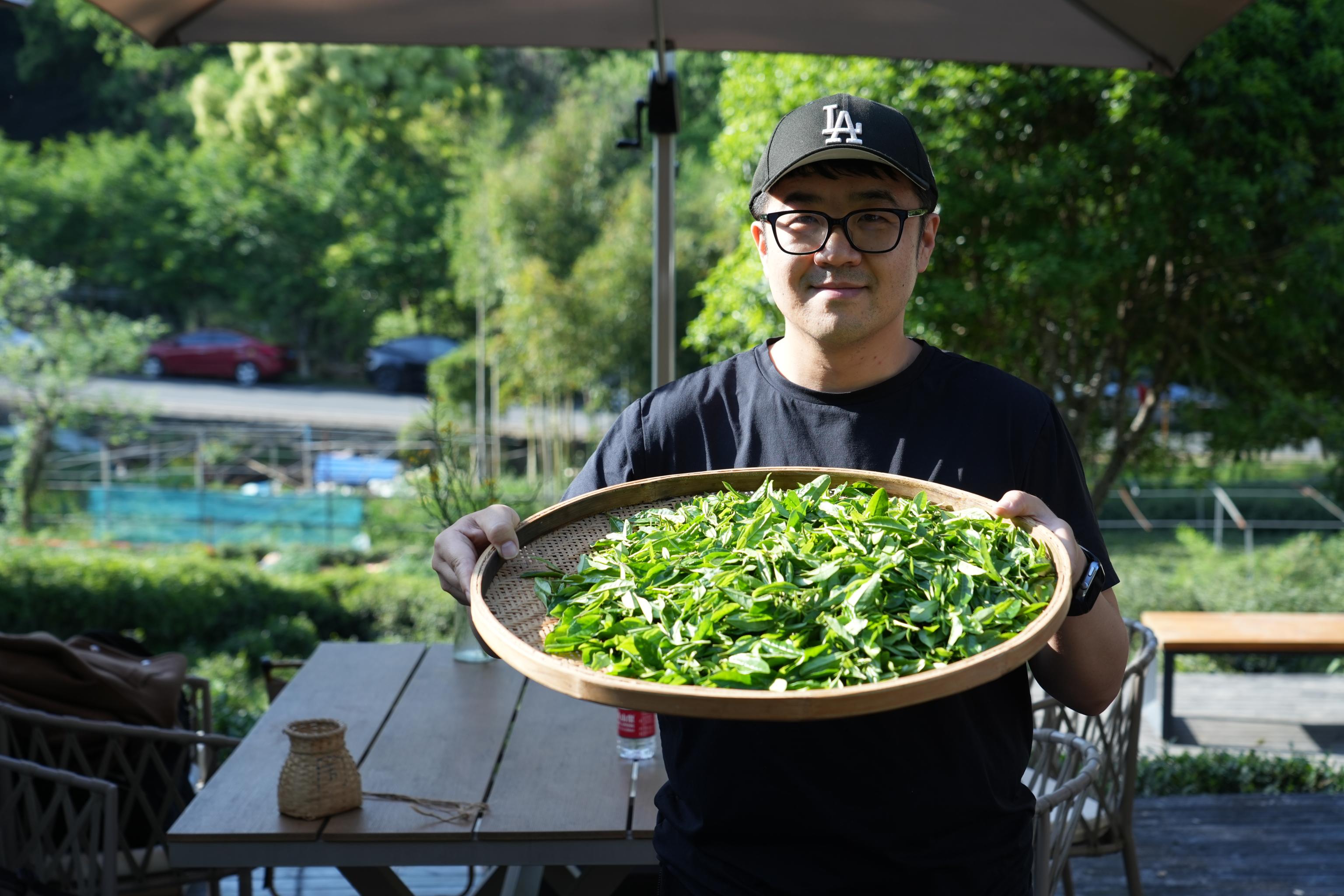
Returning with a full harvest! (Prof. Zhennan Zhou from the Institute for Theoretical Sciences as well as an associated member at CIS)
